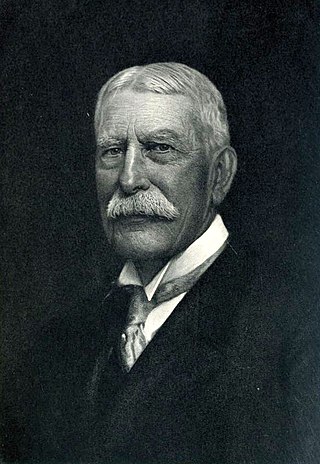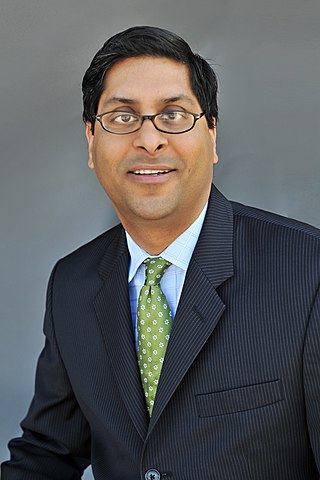
Henry Morrison Flagler was an American industrialist and a founder of Standard Oil, which was first based in Ohio. He was also a key figure in the development of the Atlantic coast of Florida and founder of the Florida East Coast Railway. He is also known as a co-founder and major investor of the cities of Miami and Palm Beach, Florida.

The Florida East Coast Railway is a Class II railroad operating in the U.S. state of Florida, currently owned by Grupo México.

CSX Corporation is an American holding company focused on rail transportation and real estate in North America, among other industries. The company was established in 1980 as part of the Chessie System and Seaboard Coast Line Industries merger. The various railroads of the former Chessie System and Seaboard Coast Line Industries that are now owned by CSX Corporation were eventually merged into a single line in 1986 and it became known as CSX Transportation. CSX Corporation currently has a number of subsidiaries beyond CSX Transportation. Previously based in Richmond, Virginia after the merger, the corporation moved its headquarters to Jacksonville, Florida, in 2003. CSX is a Fortune 500 company.

Edward Gresham Ball was a businessman who wielded powerful political influence in Florida for decades. Referred to as "a law unto himself", despite the fact that he never held public office and did not own much of the assets he controlled, he led a forest products company, a railroad and owned newspapers. He worked for and with his brother-in-law Alfred I. du Pont for nine years before running the Alfred I. duPont Testamentary Trust's businesses himself for another 46 years. He founded and led the St. Joe Paper Company to become a major player in several industries in Florida. He was a leader of the anti-communist Pork Chop Gang, a group of Democratic Party legislators from North Florida.
The Jacksonville and Atlantic Railroad is a railroad subsumed in 1899 into Florida East Coast Railway. The company was incorporated under the general incorporation laws of Florida for the purpose of constructing, maintaining and operating a railroad for public use in the conveyance of persons and property, from the south bank of the river St. Johns opposite the city of Jacksonville, Duval County, Florida, to a point on the Atlantic, at or near section 33, township 2, south, range 29, east. Florida state law chapter 3640, approved January 29, 1885, gave the company enlarged powers, including running boats across the St. Johns River.

Prime F. Osborn III Convention Center is a 265,000-square-foot (24,600 m2) convention center located in downtown Jacksonville, Florida. Opened in 1986, it was built incorporating Jacksonville Terminal Complex / Union Station as well as several thousand square feet of newly built structure.
The Jacksonville, Tampa and Key West Railway was a railroad and steamboat network in Florida at the end of the 19th century. Most of its lines became part of the Plant System in 1899 and the Atlantic Coast Line Railroad in 1902. The line remains in service today with a vast majority of it now being CSX Transportation's Sanford Subdivision.
Fortress Investment Group, LLC is an American investment management firm based in New York City. It was founded as a private equity firm in 1998 by Wes Edens, Rob Kauffman, and Randal Nardone.

The Union Station built in 1930 in Atlanta was the smaller of two principal train stations in downtown, Terminal Station being the other. It was the third "union station" or "union depot", succeeding the 1853 station, burned in mid-November 1864 when Federal forces left Atlanta for the March to the Sea, and the 1871 station.

The Champion was a streamlined passenger train operated by the Atlantic Coast Line Railroad and Florida East Coast Railway between New York City and Miami or St. Petersburg, Florida. It operated from 1939 until 1979, continuing under the Seaboard Coast Line and Amtrak. It was a direct competitor to the Seaboard Air Line Railway's Silver Meteor, the first New York-Florida streamliner.
The South Wind was a named passenger train equipped and operated jointly by the Pennsylvania Railroad, the Louisville and Nashville Railroad, the Atlantic Coast Line Railroad, and the Florida East Coast Railway. The South Wind began operations in December 1940, providing streamliner service between Chicago, Illinois and Miami, Florida. This was one of three new seven-car, all-coach streamliners operating in coordination every third day along different routes between Chicago and Miami. The other two longest enduring Chicago-Florida trains were the City of Miami and the Dixie Flagler. The South Wind remained in service through the creation of Amtrak in 1971.
The Florida Railroad was the first railroad to connect the east and west coasts of Florida, running from Fernandina to Cedar Key. The line later became part of the Seaboard Air Line Railroad, and, where still in use, is operated by CSX Transportation and the First Coast Railroad. The highway corridor of SR 24, US 301, and SR A1A/SR 200 closely parallels the former Florida Railroad.

The Dixie Flagler was a streamlined passenger train operated by the Florida East Coast Railway (FEC) between Chicago, Illinois and Miami, Florida. It began in 1939 as the Henry M. Flagler, a regional service between Miami and Jacksonville, Florida; the FEC renamed it and extended it to Chicago a year later. It was one of the few Chicago to Florida trains that passed through Atlanta. As an overnight streamliner it was part of the every-third-day pool shared by the City of Miami and South Wind. It was renamed Dixieland in 1954 and discontinued altogether in 1957.
The Jacksonville & Southwestern Railroad (J&SW) was a railroad that served Florida from 1899 to 1904. It was purchased by the Atlantic Coast Line Railroad in 1904. The Atlantic Coast Line would extend the line further west and it would become their Jacksonville—Wilcox Line. Some of the original right-of-way was converted to a recreational path in the rails to trails program in the 1990s.
Adam Hollingsworth is an American politician and business executive. He was the Chief of Staff to Florida Governor Rick Scott. Hollingsworth previously served as Chief of Staff to former Jacksonville, Florida Mayor John Peyton and is a former executive for CSX Corp.

Husein Aftab Cumber is the chief strategy officer for Florida East Coast Industries, LLC. (FECI). FECI is one of Florida's largest commercial real estate, transportation and infrastructure companies.
Vincent Signorello is the president and chief executive officer of Florida East Coast Industries, LLC, Florida’s oldest and largest commercial real estate, transportation and infrastructure holding company. He currently oversees all operations and subsidiary companies.
Flagler Global Logistics is a Coral Gables, Florida, United States–based company that offers integrated third-party logistics, supply chain management solutions, and is the state's largest developer of industrial real estate.
Flagler is a commercial real estate company headquartered in Coral Gables, Florida. Flagler is a corporate legacy of American businessman Henry M. Flagler.








